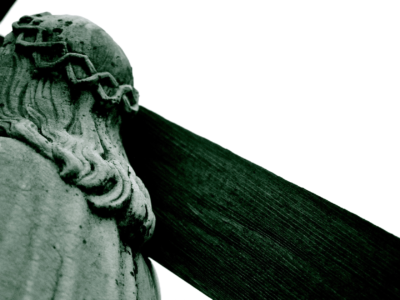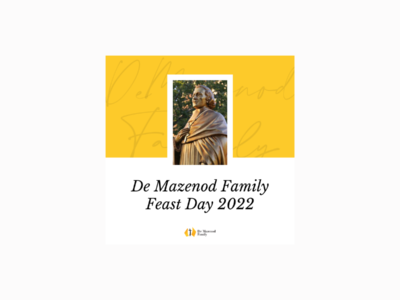By Nimmi Candappa
This series of Charism Corners continue exploring how we, as part of the De Mazenod Family, can incorporate more fully into our lives, the various components of the Oblate Charism.
It is as missionaries that we worship in the various ways the Spirit suggests to us. We come before Him bearing with us the daily pressures of our anxiety for those to whom He sends us. Our life in all its dimensions is a prayer that, in us and through us, God’s Kingdom come.
Our personalities, our inclinations, our ways of approaching the world can influence how we worship God. There are those who are comfortable with overt and effusive worship, and others who convey deep faith through the gentlest of nods towards the Tabernacle. There are those who seek God in the discipline, rituals and structure of our faith, while others are drawn to opportunities of silent reflections, or walks in nature. None knows these inner inclinations more than the Spirit, who, knowing us individually, gently suggests the means of worship that resonate with us.
To hear clearly these gentle proddings, we work on our own faith journey so we might better reach out to those yet to have a friendship with God. As lay people in the De Mazenod Family, we are missionaries of the heart, always looking for opportunities to meet heart-to-heart with the other, to share the love of Jesus with an intensity that propels the other to seek out God.
St Eugene taught that “We must lead people to act like human beings, first of all, and then like Christians, and, finally, we must help them to become saints”. In doing so, he identified the need for us to acknowledge our humanity in all its aspects, a key step to progressing in holiness. Our faith does not make us immune to the worries and anxieties of the world, or the pressures we place on ourselves. Yet, coming before God bearing these pressures helps alleviate them, and convert them into prayer. By being honest and vulnerable in front of God, we present ourselves, fully human and without pretence, ready to be worked on by God. Our worries have now become a means of drawing closer to God.
In this way, we use all the dimensions of our life as prayer, with the primary focus of permitting to shine through our life, a snippet of God’s Kingdom. The Kingdom of God, where we look to feel joy because we are children of God, even when life is disappointing or dreary. The Kingdom of God, where we do not retaliate when people offend us. The Kingdom of God, where we listen to what the other has to say, share our resources, seek out the good in the other. Allow the other to be fully human.
In the next fortnight, we might look out for means of helping someone “to act like a human being”. Perhaps we can meet our human need to be heard, by listening openly to someone’s viewpoint. Or we can engage someone in a project and meet the human need to feel needed and to contribute. Or we might show love to someone needing to be loved. Little, yet significant, ways in which we can bring about the Kingdom of God in the life of the other.








